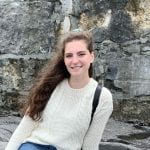This is an insight written by Stella Hudson on the recent Bahá’í Chair for World Peace conference, “Global Climate Crisis: Seeking Environmental Justice and Climate Equality” held on September 2, 2021.
Sustainable infrastructure is an issue at the forefront of many conversations concerning the future of American cities. The massive surge in bicycle lanes and racks, public green spaces, public recycling, emphasis on local produce, and small business must all be categorically good, right? After all, climate change is one of the biggest problems facing the world today.
As Prof. Cara Daggett pointed out in her lecture during the Global Climate Crisis Conference: Seeking Environmental Justice and Climate Equality, individual action is excellent, but it is not enough. Indeed, much of the pressure to reduce, reuse, and recycle falls on women, who are already overtaxed and under-compensated, in terms of the energy they expend. It should not be the role of the marginalized to save the privileged.
Placing the responsibility on the people in charge, the governments and corporations, sounds excellent. Even from a practical standpoint, cities taking action is more effective than relying on each individual. One person riding a bicycle to work is good, but 100 people doing it is better. When a community builds structures that make it easier and safer to be green, more people are encouraged to participate. Sustainable infrastructure in cities should be an obvious and straightforward solution.
But, as Prof. Julian Agyeman pointed out Thursday in his lecture, nothing is ever that simple. We cannot charge ahead full force to fix the environment if we do not also strive to fix the fundamental brokenness in our society. The levels of racial, socioeconomic, and gender-based inequality in American cities are genuine impediments to fighting climate change. We must tackle both human inequality and environmental preservation. If one is ignored in favor of the other, then neither can be fully understood nor addressed.

Urban planning and sustainable infrastructure can be strong tools to benefit the earth, but if they are implemented uncritically, they can also be tools for perpetuating inequality and white supremacy. Bicycle racks under bridges put up in the guise of making life easier for cyclists also function to make life harder for the people who used to sleep there. The environment and climate change impact everyone; if your solution doesn’t serve everyone, if it doesn’t address inequality, then it isn’t really a solution.

In the push to fight climate change, we cannot forget the all-important human element. I don’t mean the oft-cited idea that we should preserve the planet for the next generation. Discussions on climate change tend to be very forward-thinking, despite the fact that many of the effects are devastatingly immediate. When I say we should not forget the human element, I mean that in thinking of solutions, especially ones that need to be implemented relatively quickly, we can’t forget that not every person has the same ability to be green. Some people buy from unsustainable fast fashion brands because they are affordable, single-use diapers are much more convenient, and putting up bike racks so people can’t sleep under the shelter of a bridge just displaces people; it doesn’t solve homelessness or climate change.
In creating the solutions, cities, and communities of the future, we need global thinking for a global problem. Coming at the issue from multiple angles is the only way to get to an answer. People, academics and non-academics alike, tend to fall into a set way of thinking. It can be easy to overlook the many facets of an all-encompassing concept like climate change. It is overwhelming to contemplate how big and complicated it is.
However, in confronting the hugeness of the issue, hope is revealed. It is only through working together, through the congregation of many voices from many fields and many experiences, that we can begin to move in a direction that is beneficial for both humans and the environment, for everyone.
About the Author:
 Stella Hudson is a Graduate Assistant with the Baha’i Chair for World Peace. She graduated from the College of William and Mary in 2021 with a B.A. in English. She is attending the University of Maryland and pursuing a Master’s of Library and Information Science.
Stella Hudson is a Graduate Assistant with the Baha’i Chair for World Peace. She graduated from the College of William and Mary in 2021 with a B.A. in English. She is attending the University of Maryland and pursuing a Master’s of Library and Information Science.
